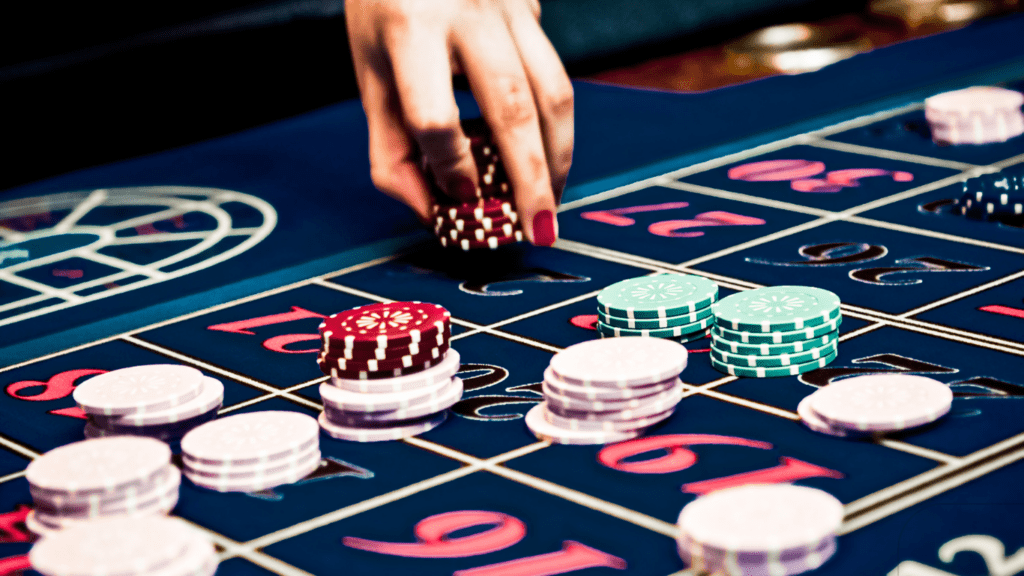Venturing into a casino, one can’t help but be captivated by the allure of the games of chance that line the vibrant floors. As I delve into the intricate world of casino mathematics, I uncover the pivotal role of probability and the elusive house edge. Understanding these mathematical concepts is key to unraveling the mysteries behind the games that entice and entertain millions worldwide.
In this exploration, I’ll shed light on how probability governs the outcomes of casino games, from the roll of dice to the spin of a roulette wheel. Delving deeper, I’ll demystify the concept of the house edge – the subtle advantage that ensures the house always maintains a winning position in the long run. Join me on this journey through the numbers that underpin the thrilling realm of casino gaming.
The Basics of Casino Game Mathematics
As I delve deeper into the mathematics of casino games, it becomes evident that understanding probability lies at the core of grasping the dynamics of these games. Probability dictates the likelihood of different outcomes occurring, such as specific card hands in poker or particular numbers on a roulette wheel.
- Understanding Probability
In casino gaming, probability plays a fundamental role in determining the chances of winning or losing. For instance, in a game of blackjack, the probability of drawing a specific card from a deck influences strategic decisions at the table. Being aware of the probability of various events can help players make informed choices in their gameplay. - The Concept of House Edge
The house edge is a critical concept that defines the advantage the casino holds over players in the long run. It represents the percentage of each bet that the casino expects to win on average. Understanding the house edge is vital for players as it helps them realize that, statistically, the odds are always slightly in favor of the house.
Common Casino Games and Their Math
When delving into the mathematics behind various casino games, it’s vital to grasp the probabilities and house edge that shape the gaming experience. From the likelihood of specific outcomes to the casino’s built-in advantage, understanding these mathematical concepts can greatly influence one’s approach to gambling.
Roulette: Odds and Payouts
In roulette, the game revolves around predicting where the ball will land on the spinning wheel. With numbers ranging from 0 to 36 (and an additional 00 in American roulette), players can place bets on specific numbers, colors, or whether the outcome will be odd or even. The odds of hitting a single number bet are 1 in 37 (1 in 38 in American roulette), resulting in a payout of 35 to 1. However, the presence of the 0 and 00 pockets gives the house an edge, making the true odds slightly lower.
Blackjack: Strategy and Probability
Blackjack, also known as 21, is a card game where players aim to beat the dealer without exceeding a total of 21. Understanding the probabilities of drawing certain cards can significantly impact one’s decisions during gameplay. Strategies such as knowing when to hit, stand, double down, or split pairs are rooted in mathematical probabilities, increasing the player’s chances of winning. By utilizing optimal strategies, players can reduce the house edge to as low as 0.5% in some variations of the game.
Slots: Randomness and Return to Player
Slot machines are renowned for their randomness, driven by random number generators (RNGs) that ensure each spin is independent of the previous one. The concept of Return to Player (RTP) signifies the percentage of wagered money that a slot machine is expected to pay back to players over time. While the RTP offers insight into long-term payouts, the randomness of slot outcomes adds an element of unpredictability to the gaming experience. It’s crucial for players to understand that while some strategies may enhance gameplay, the ultimate results are dictated by chance.
Advanced Topics in Casino Mathematics

When exploring advanced topics in casino mathematics, I can delve deeper into the impact of game variations on the house edge and discuss the mathematical basis behind card counting.
The Impact of Game Variations on House Edge
In various casino games, understanding how different variations affect the house edge is crucial. With games like blackjack, slight rule changes can significantly alter the advantage the casino holds over players. For instance, a variation that allows the dealer to hit on a soft 17 instead of standing can increase the house edge. Being aware of these nuances can help me make strategic decisions to maximize my chances of winning.
Card Counting and Its Mathematical Basis
Card counting is a renowned strategy used in games like blackjack to gain an edge over the house. It involves keeping track of the cards that have been dealt to predict the likelihood of certain cards appearing next. This strategy is mathematically grounded in probability theory, where I adjust my bets based on the ratio of high to low cards remaining in the deck. By understanding the mathematical principles behind card counting, I can enhance my overall gameplay in the casino.
Practical Tips for Players
As a player, I focus on implementing practical strategies to maximize my chances of success while enjoying casino games. Understanding mathematical principles is crucial, especially when it comes to managing bankrolls effectively and selecting bets wisely.
Managing Bankrolls Using Mathematical Principles
I prioritize the management of my bankroll by applying mathematical principles. By calculating the optimal bet size based on my total budget and risk tolerance, I ensure long-term sustainability in my gameplay. Setting aside a specific portion of my bankroll for each session helps me avoid reckless spending and extends my playing time.
How to Choose the Least Risky Bet
When it comes to choosing bets, I always opt for options with the least risk involved. By analyzing the probability and potential payouts of different bets, I can identify opportunities that offer a good balance between risk and reward. I focus on bets with lower house edges, such as even-money bets in roulette or basic strategy plays in blackjack, to increase my chances of consistent wins.

 David Fields is a dedicated contributor to Jackpot Joyfully, specializing in the intricacies of sports betting and casino games. With years of experience in the gaming industry, David provides readers with expert advice, detailed strategies, and the latest insights to help them make informed decisions. His commitment to fostering a fun yet responsible gaming environment shines through in every article he writes, making him a trusted voice for both new and experienced players.
David Fields is a dedicated contributor to Jackpot Joyfully, specializing in the intricacies of sports betting and casino games. With years of experience in the gaming industry, David provides readers with expert advice, detailed strategies, and the latest insights to help them make informed decisions. His commitment to fostering a fun yet responsible gaming environment shines through in every article he writes, making him a trusted voice for both new and experienced players.

